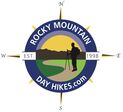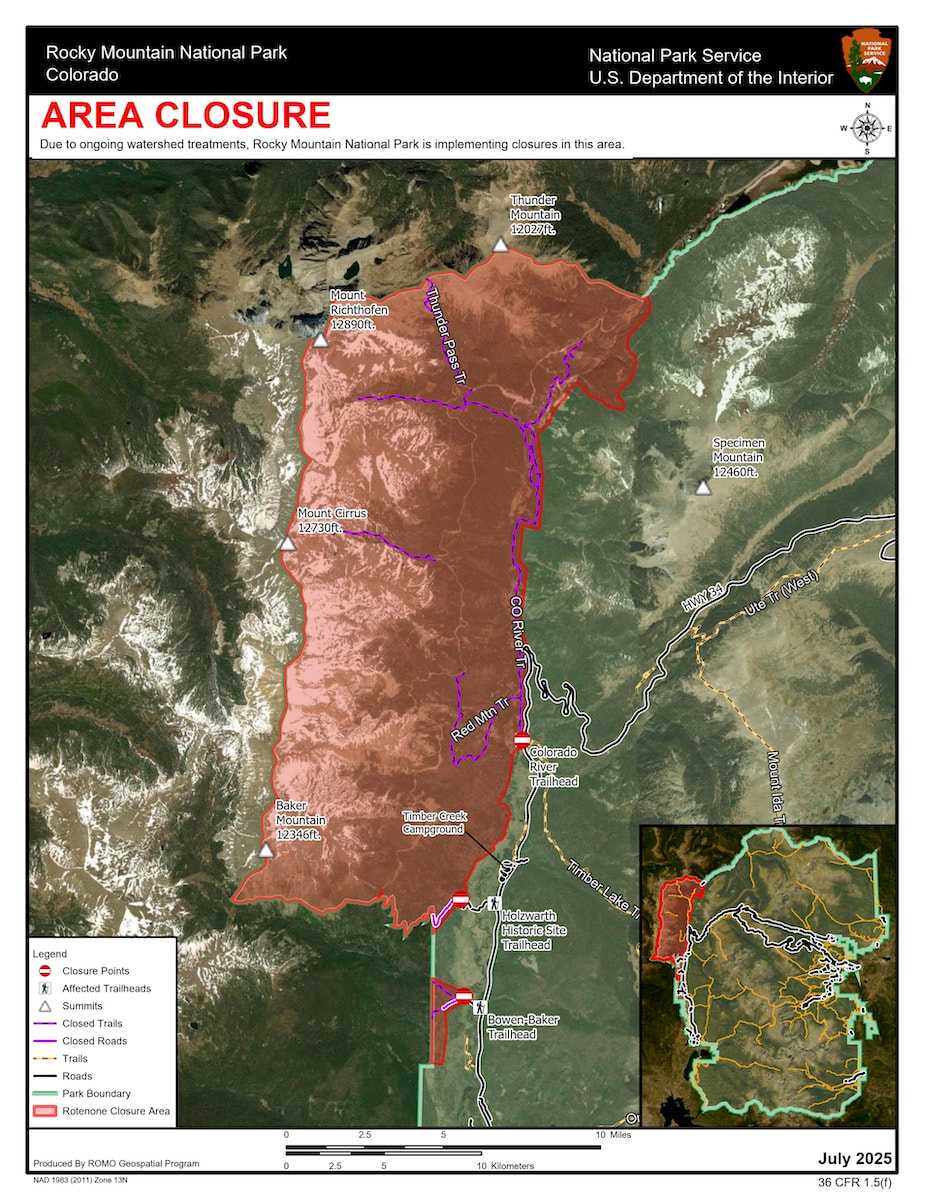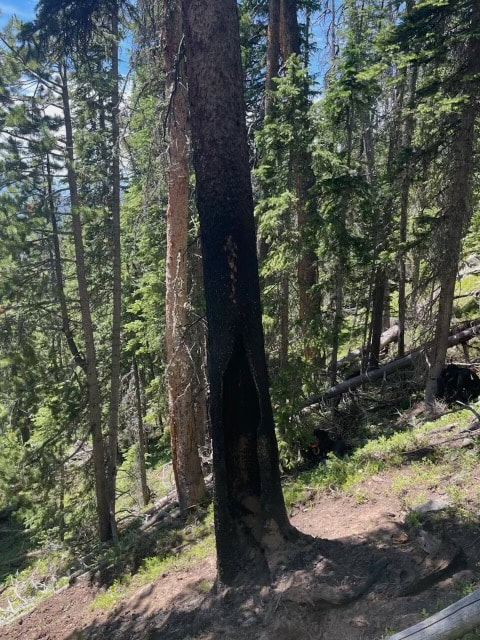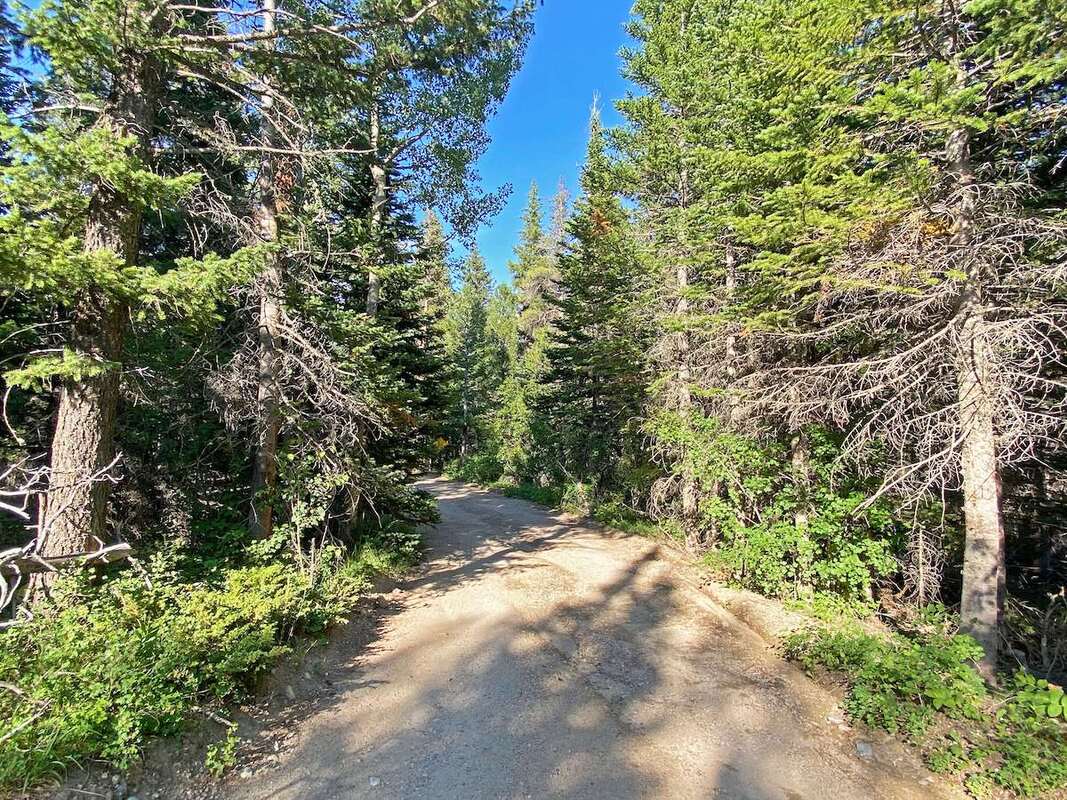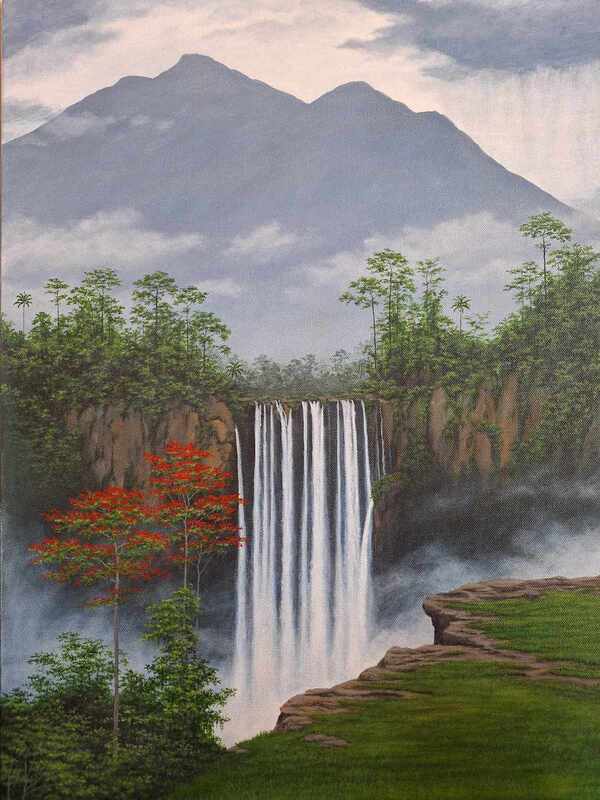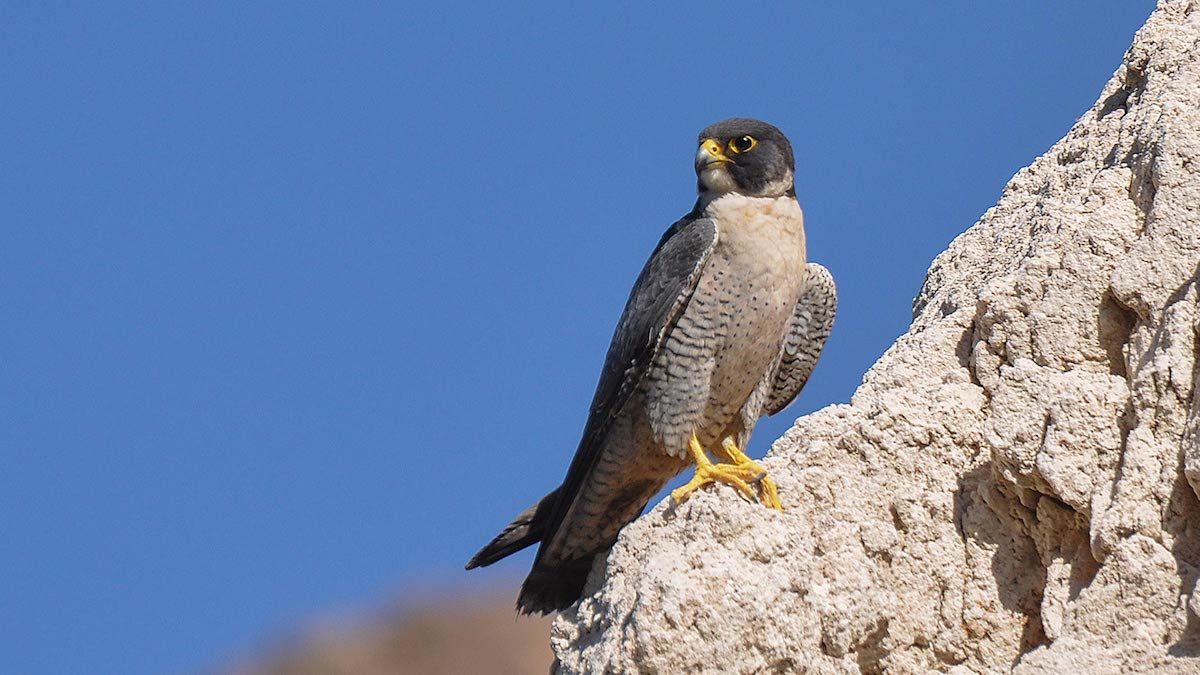|
Rocky Mountain National Park will be implementing the Poudre Headwaters Project during the week of August 25-31, 2025. This project involves the removal of all non-native fish from the Grand Ditch and upstream and downstream tributaries inside RMNP. Once removed, native Greenback cutthroat trout will be reintroduced into its native range in the headwaters of the Cache la Poudre River.
To implement this project, some areas on the west side of RMNP will be closed to all uses, including hiking and fishing access. To remove non-native fish, aquatic biologists will apply a piscicide called rotenone to the 14.3-mile Grand Ditch system and its upstream and downstream tributaries. Rotenone is commonly used by state and federal land management agencies. This project will be led by biologists with the U.S. Forest Service. Other partners include Colorado Parks and Wildlife and U.S. Fish and Wildlife Service. Additional funding support is provided by Trout Unlimited and the Rocky Mountain Conservancy. Trout that are not native to RMNP, including brook trout, currently occupy these waters. They pose threats to native greenback cutthroat trout if not removed as they could move into the greenback recovery area. Because of the level of activity associated with the implementation of this project, all areas and trails within the project zone will be closed to all uses beginning on Monday, August 25 through Sunday, August 31. The Colorado River Trail and the Grand Ditch will be closed. While this project is underway, the following trails will remain open in the Kawuneeche Valley: East Inlet Trail, North Inlet/Tonohutu Trail, Green Mountain Trail, Coyote Valley Trail, Onahu Trail, and Timber Lake Trail. The Holzwarth Historic Site and Harbison Meadows Picnic Area will also remain open. Fishing access will remain open in all areas along the Colorado River located south of the Colorado River Trailhead, including near the Holzwarth Historic Site and Coyote Valley. Water in the Colorado River may appear brown in color due to the treatments upstream. This water is safe for people and fish. Waterways that have been treated with rotenone may appear red in color. For your safety, do not pick up dead fish, consume fish, or drink water that has been treated with rotenone. These areas will be clearly signed. For additional information about Rocky Mountain National Park, please visit www.nps.gov/romo or call the park Information Office at 970-586-1206.
0 Comments
At approximately 6 p.m. on the evening of Wednesday, July 2, 2025, park rangers in Rocky Mountain National Park received reports from visitors that smoke was visible from Timber Creek Campground and the Baker Gulch areas of the park. RMNP park staff began to investigate for a potential fire start.
RMNP fire management staff confirmed that the smoke was coming from a lightning strike within the park. NPS and Grand Lake Firefighters were on scene last night. No values are at risk. The Baker Gulch Fire is currently 0.10 acres and is located north and west of the Holzwarth Historic Site along the east side of the Grand Ditch. It is contained and controlled. Rocky Mountain National Park always has Stage 1 fire restrictions in place, which means that campfires are prohibited except within designated campfire rings inside picnic areas and drive-in campgrounds. The use of portable charcoal grills, wood fuel camp stoves, and propane/butane-fueled gas stoves is allowed. Fireworks are always prohibited within Rocky Mountain National Park. Use caution and vigilance when having a fire. Never leave a campfire unattended. When done with a fire, use the drown and stir method to put it out. Pour water on the fire, use a shovel or stick to stir the coals, add more water and repeat until the coals are cool to touch. Recovery efforts took place yesterday for a 66-year-old female from Fort Collins, Colorado who suffered an apparent fall near Chasm Lake.
On Tuesday night, July 1, park rangers were notified of an overdue hiker. The individual was planning a day hike to Chasm Lake and had not returned as planned. The woman’s body was discovered early morning, July 2, on the south side of Chasm Lake in a scree slope. Rocky Mountain National Park Search and Rescue team members were aided by Mesa Verde Interagency Helitak crew for recovery efforts. The woman’s body was flown yesterday afternoon via a long line operation to the Upper Beaver Meadows helipad where she was transferred to the Boulder County Coroner’s office. The woman’s name will be released by the Boulder County Coroner’s office after next of kin are notified. Beginning Tuesday, July 15, through Friday, July 18, the Wild Basin Road in Rocky Mountain National Park will be closed to all uses, including vehicles, bicycles and pedestrians for road maintenance. This closure will occur at the Wild Basin Entrance Station and will include the entire two-mile section of the road to the Wild Basin Trailhead.
The park’s roads crew will be spreading gravel and grading this narrow road to address ruts, potholes and help with drainage. Due to the road being closed to all uses from July 15 through July 18, visitors should avoid this area of Rocky Mountain National Park during this time. The trailhead parking area for the Sandbeach Lake Trail will not be impacted by this closure. Spring opening operations for Old Fall River Road continue. On Tuesday, July 1, the road will be closed to all uses (including pedestrians, people walking dogs on leash, and cyclists) between the hours of 6 a.m. to 4:30 p.m. Beginning at 6 a.m. on Wednesday, July 2 through Thursday, July 3, the road will be closed to all uses for dust abatement. Old Fall River Road will open for the season to vehicles on Friday morning, July 4. This historic road normally opens to vehicles in early July.
Old Fall River Road was built between 1913 and 1920. It is an unpaved road which starts next to Endovalley Picnic Area and ends at the top of Fall River Pass and merges with Trail Ridge Road at Alpine Visitor Center. This road follows the steep slope of Mount Chapin’s south face. Due to the narrow and winding nature of the road, the scenic 9.4-mile route is one-way uphill only. Vehicles over 25 feet and vehicles pulling trailers are prohibited from traveling on Old Fall River Road. During certain hours of the day, visitors to Rocky Mountain National Park will need a timed entry reservation. There are two reservation options available: Timed Entry or Timed Entry + Bear Lake Road. Timed Entry Reservations are required to enter the park between the hours of 9 a.m. to 2 p.m. These reservations provide access to areas of Rocky Mountain National Park located outside of the Bear Lake Road corridor, including access to Old Fall River Road. To learn more visithttps://go.nps.gov/romo/timedentry. Park staff have confirmed the presence of white-nose syndrome (WNS) in three bats at Rocky Mountain National Park; two bats on the west side and one bat on the east side of the park. All three bats were long-legged bats (Myotis volans). With these new findings, white-nose syndrome has now been detected on both sides of the continental divide in Rocky Mountain National Park. This is the first documented case of WNS in Grand County, Colorado.
This is an unfortunate but not a surprise finding after laboratory tests conducted by the U.S. Geological Survey (USGS) in April, confirmed that the fungus Pseudogymnoascus destructans (Pd) had been positively detected in bats found in the Holzwarth Historic Site area located on the west side of Rocky Mountain National Park. This was the first confirmed detection of Pd in Grand County, Colorado. White-nose syndrome (WNS) is a disease that is often fatal in bats. Pd, the fungus that causes WNS, can spread rapidly, primarily through bat-to-bat contact. WNS does not cause illness in humans, but humans are able to spread the fungus to new places. To protect yourselves and conserve bat populations, we recommend visitors: Report dead/injured bats to park personnel. To protect yourself and bats, never touch or pick up a bat. Although WNS does not cause illness in humans, a small percentage of bats can be infected with other dangerous diseases, such as rabies. Decontaminate. Ensure you properly decontaminate your gear and outerwear after visiting a cave or other bat habitat. Any new detection of Pd and WNS is worrisome because bats are vital for healthy ecosystems. Rocky Mountain National Park is home to nine known species of bats, five of which have been found living in areas above 11,000 feet. To learn more about bats at Rocky Mountain National Park Bats - Rocky Mountain National Park (U.S. National Park Service) WNS has been blamed for millions of bat deaths nationwide since its initial detection in New York State in 2006. In July 2022, the first confirmed case of WNS was reported in Southeastern Colorado. Pd and WNS have also been confirmed in Larimer County, Colorado. Colorado Parks and Wildlife and the USGS, along with U.S. Fish and Wildlife Service and National Park Service, have been conducting WNS surveys for over a decade, monitoring bats for presence of Pd. Rocky Mountain Conservancy has assisted with funding for bat monitoring and education in Rocky Mountain National Park. Colorado is home to 19 native bat species, at least 13 of which may be susceptible to this disease. Colorado's native bats are all insect eaters and use various habitat types across the state. They are most active during the summer months and spend the winter either hibernating in underground roosts throughout the state or migrating south. The National Park Service and other state and federal agencies will continue to monitor bats throughout Colorado. To learn more about White Nose Syndrome and how it impacts bats, visit https://www.whitenosesyndrome.org/ It’s summer in Rocky Mountain National Park and all rivers, creeks, and streams are flowing high and fast this time of year. Moving water is beautiful, it can also be very dangerous. Don’t underestimate the power of water. Over the past week, park rangers and other swift water rescue personnel have responded to three separate swift water rescue incidents inside Rocky Mountain National Park. These incidents involved both adults and children and all occurred in the St. Vrain River in the Wild Basin area.
Park visitors are reminded to view moving water from a distance. Rocks and logs along the banks of rivers, streams and waterfalls can be deceptively slippery. Stay at least one body length back from the edge of riverbanks and waterfalls. Always provide proper supervision for children, who by nature, tend to be attracted to water. Make sure children stay back from the water’s edge. If you see swift water moving across a hiking trail, stop. Don’t try to cross – the water could be deeper than you think. Be prepared to turn back to alternate hiking routes and complete your hike another day. If you see someone slip into swift moving water, take the following steps:
Even a few inches of moving water can knock an adult off their feet. Powerful currents can quickly pull a person underwater. Rocky Mountain National Park Search and Rescue team members greatly appreciate the assistance from Estes Valley Fire Protection District - Dive and Swiftwater Rescue Team on these incidents. Late Wednesday afternoon, human remains were found in an area near the Alpine Ridge Trail in Rocky Mountain National Park. This area is near the Alpine Visitor Center, which is located along Trail Ridge Road.
Park Law Enforcement Rangers responded and are leading an ongoing investigation. The Larimer County Coroner’s Office will confirm positive identification of the individual and release additional information when the next-of-kin is identified and have been notified. No further information is available at this time. Hunter Goan, Rocky Mountain National Park’sCurrent Artist-in-Residence, to Host Two Special Programs6/13/2025 Hunter Goan is Rocky Mountain National Park’s current Artists-in-Residence. Goan is a Diné (Navajo) landscape painter and arborist with a background in environmental research.
"Growing up in Virginia, the surrounding forests kept me inspired while I was away from my culture. I come from a long line of Navajo artists, and to this day, my family still cares for and draws inspiration from the land. Throughout my education, I found art and science impossible to separate. Combined with my culture, they go hand in hand while I paint. Each painting represents a moment in time, capturing the essence of nature through a lens of reverence and respect." During his residency, Hunter Goan will host two special programs. On Sunday, June 15, 2025, join us at Beaver Meadows Visitor Center on the east side of RMNP at 1 p.m. for the program "The Art of Trees - An Indigenous Perspective." Indigenous peoples have actively shaped North American forests for thousands of years, creating a continent-wide tapestry that we still care for to this day. In this lecture, Goan will share information about the trees within this tapestry, their lives, their role in the environment, and become familiar with the forests in Rocky Mountain National Park. We will also discuss the ancient practices that shaped our forests and understand how time and the elements sculpt individual trees into living works of art. This is a lecture-based program that will be 1 hour to 1 hour, 30 minutes in duration. This program is free and open to the public. Visitors of all ages are invited to attend. On Saturday, June 21, 2025, join us at Fall River Visitor Center on the east side of RMNP anytime between 11 a.m. and 3 p.m. for the program "Art Unleashed: How to Capture a Tree." During this program, Goan will share information about the trees that call Rocky Mountain National Park home through art! Learn how to paint different tree species while learning about their unique characteristics, ecological roles, and history. This is an interactive, drop-in program. Participants of all ages and experience levels are invited to stay as long as they like. It is recommended to stay 15 to 30 minutes to enjoy this activity. All art supplies will be provided and no prior knowledge or experience is needed to participate. Thank you to Rocky Mountain Conservancy for their generous support of the Artist-in-Residence program! To learn more and to see the full summer 2025 Artist-in-Residence program schedule, visit athttps://go.nps.gov/romo/air Since the late 1800s, there has been a special connection between our national parks and the arts. Artists like George Catlin, Thomas Cole, Thomas Moran, Albert Bierstadt, and more played a key role in helping to draw attention to the beauty and wonders found in many national parks. Recognizing the important role that art has played in the history of our national parks, Rocky Mountain National Park was among the first national parks to offer an Artist-In-Residence Program. Since 1984, Rocky Mountain National Park has hosted over 200 artists through this program. They have included authors, composers, jewelry makers, musicians, painters, photographers, poets, quilters, sculptors, textile artists, and more. Each year to protect nesting raptors, Rocky Mountain National Park officials initiate temporary closures in areas of the park. To ensure that these birds of prey can nest undisturbed, specific areas within the park are closed temporarily to public use during nesting season and monitored by wildlife managers.
The following temporary closures have been lifted in the Lumpy Ridge area of RMNP: The Book, Bookmark, Bookmark Pinnacle, Left Book, Thunder Buttress, The Needle, and The Parish. Based on raptor monitoring, the following formations and access trails remain closed for the protection of nesting raptors: Rock One and Twin Owls. For more information and to see a map of closure areas, visit https://go.nps.gov/romo/raptorclosures Nesting birds of prey include many species of hawks, Peregrine falcons, and Golden eagles. Peregrine falcons can dive at speeds over 200 mph and may cause harm to humans when defending their nests. If disturbance pressure from human use is sustained near a nesting area, birds of prey will abandon their nest, causing chick mortality. These closures are in place for the safety of both visitors and wildlife. The National Park Service is committed to preserving birds of prey. If nest sites are located or territorial behaviors such as aggressive divebombing/vocalizing or birds fleeing nest sites due to human disturbance are observed, please report the location to [email protected] Thank you to Rocky Mountain Conservancy for their generous support of raptor monitoring and raptor education projects. The same cliffs that are critical for raptors also appeal to climbers. The cooperation of climbing organizations and individuals continues to be essential to the successful nesting of raptors in Rocky Mountain National Park. |
RMNP UpdatesPress Releases from Rocky Mountain National Park and the Rocky Mountain Conservancy.
Archives
September 2025
|
© Copyright 2025 Barefoot Publications, All Rights Reserved
